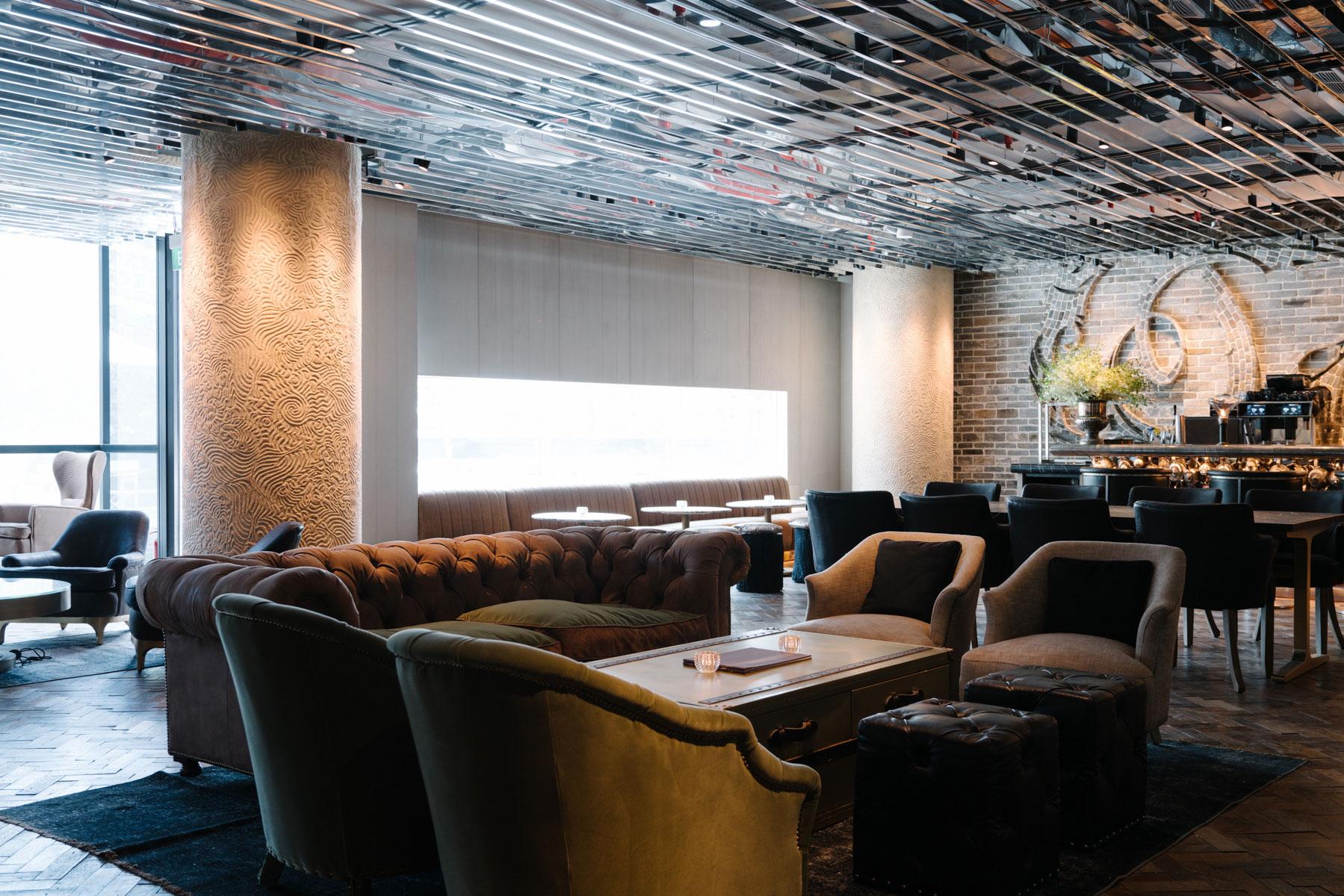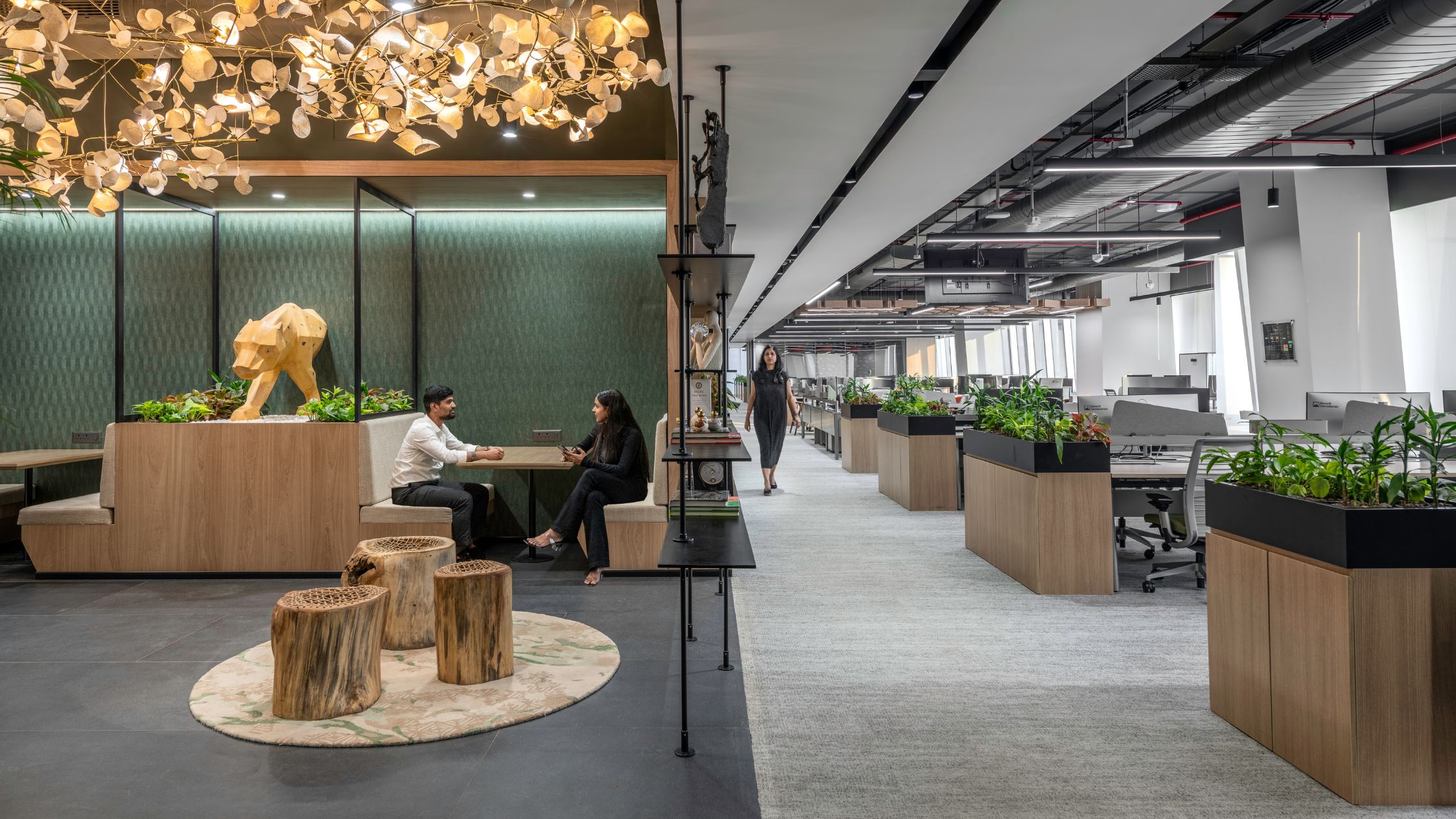From coworking spaces to coworking communities: Here’s how design is shaping this shift
Walk into a coworking space in Singapore and you’d get a good idea of the type of people who work there. A few years ago, the low seating, cushy beanbags, foosball tables, and readily available cold brew coffee (and maybe even beer) would tell you that the users were young — think tech entrepreneurs, designers or creative types.
Today, a quick glance at a coworking space and you’ll notice a few differences. The beanbags will be interspersed by ergonomic chairs with adequate lumbar support. The game room will be flanked by a parents’ room. The cafeteria will likely serve a variety of food and beverage options to cater to different dietary needs.
Diversity
If this makes you think that coworking spaces have diversified, you’re right. The people occupying these spaces are no longer exclusively tech-savvy millennials in creative fields. Instead, they include cross-generational teams, women returning to their careers after maternity breaks, and professionals from traditional industries you don’t typically associate with coworking spaces.
Coworking spaces now host a lot more seasoned professionals who are switching gears later into their careers or founding a new company backed by decades of experience in the corporate sphere. Many of them also continue to work after retirement, with consulting roles and short-term projects. A study of coworking spaces showed that the number of people aged 60 and above quadrupled between 2016 to 20171. On the other hand, thanks to the new wave of university-operated coworking spaces, it’s also not unusual to see students using these spaces to work on projects or network with industry professionals.
The companies operating out of these workspaces are no longer limited to fledgeling tech and design startups either. More traditional industries like banking and finance are moving to coworking spaces, as are big multinational firms. For instance, Garage Society in Hong Kong fosters a strong ecosystem for investors and venture capitalists. Given the sensitive nature of their data and discussions, Space Matrix designed its coworking space at Beverly House Wan Chai with an entire floor outfitted with suites and meeting rooms designed to offer data and acoustic privacy.
Meeting the needs of the community
As an ecosystem becomes more diverse, modern coworking spaces think beyond the professional requirements of their members and are focusing on the need to build a community and create a sense of belonging and foster camaraderie.
Some coworking offices are specifically designing their spaces and their activities to be more welcoming to newcomers to the city. Many professionals find their new lives in a busy, fast-paced metro an isolating experience and find it difficult to develop their social circle. Entrepreneurs within the coworking sector are now designing shared spaces to fill this social gap and provide a platform to cultivate professional contacts as well.
Eaton Club, a coworking space in Hong Kong, also functions as a social fintech work hub. The project followed an open office plan in a grade A building, so our designers doubled up as consultants to meet all the building regulations while creating a unique, dynamic space for members to host meetings over coffee or beer or entertain a client in style.
Giving back to the community
By 2022, the number of coworking spaces is set to reach 25,968 — a massive 42% increase from 2019. In fact, since 2015, an average of 2,595 new spaces have been set up each year, with Singapore witnessing the second highest per capita growth in coworking spaces2. In a thriving community such as this, the need for equal opportunities and giving back to the larger community becomes a pressing requirement — and modern coworking spaces address that too.
Some coworking offices are designed especially for social entrepreneurs and innovators looking to make a positive change in the world. Others are home to local activists and non-profit organisations who are passionate about community causes. Unlike the glitz and glamour of corporate coworking offices, these spaces take a more holistic approach.
Take XPACE, for instance, which is opening in Singapore later this year. XPACE is a coworking concept centred around food, spearheaded by Nichol Ng from The Food Bank Singapore. Designed with all-natural materials, equipped with sustainable furniture and furnished with fittings sourced from small, local manufacturers, the design espouses the authenticity and integrity of the space. As a community hub, coworking spaces like these allow entrepreneurs to provide mutual support for each other, and connect with mentors and investors who can help realise their goals and ambitions.
The future of coworking lies in the community of people who support it. Smart operators in mature markets such as London and New York have identified the flip side of the coworking model — the solution to keep a happy customer is to provide multiple options. With this is borne the co-living model of working and living in the one environment. Month by month payment options, flexible working and leisure facilities as well as a supportive community of like-minded individuals, usually in hip or cool city centre locations, appeals to many types of end users — it offers flexibility and control and, more often than not, a month-by-month, all-in-one contract.
Newcomers to a city — and indeed, with rising rental costs, local inhabitants too — are enjoying the benefits of living and working within a community. The idea of a fixed monthly, all-inclusive fee appeals to a wider sector of the community, taking away the headache and the pain of finding a place to live and a place to work. It’s only a matter of time before we see apartment blocks, boutique hotels and warehouses being converted to provide the next offering in the cowork-live revolution.
As Head of Design Coordination for Space Matrix, Richard Baker has brought his sharp conceptual skills, strong attention to detail and expansive experience to the table, especially in projects such as Ascendas Singbridge, Singapore & China, Changi Airport Co-Working, MBS High Limits Casino, Singapore, and Hilton Sanya, China. He is a strong supporter of building communities and supports individuals and collaboratives to bring their product or trade to the market in the pursuit of their social and economic well being and betterment of their community and environment.
Interested in developing coworking spaces that are designed to welcome a sense of community? Talk to us.





